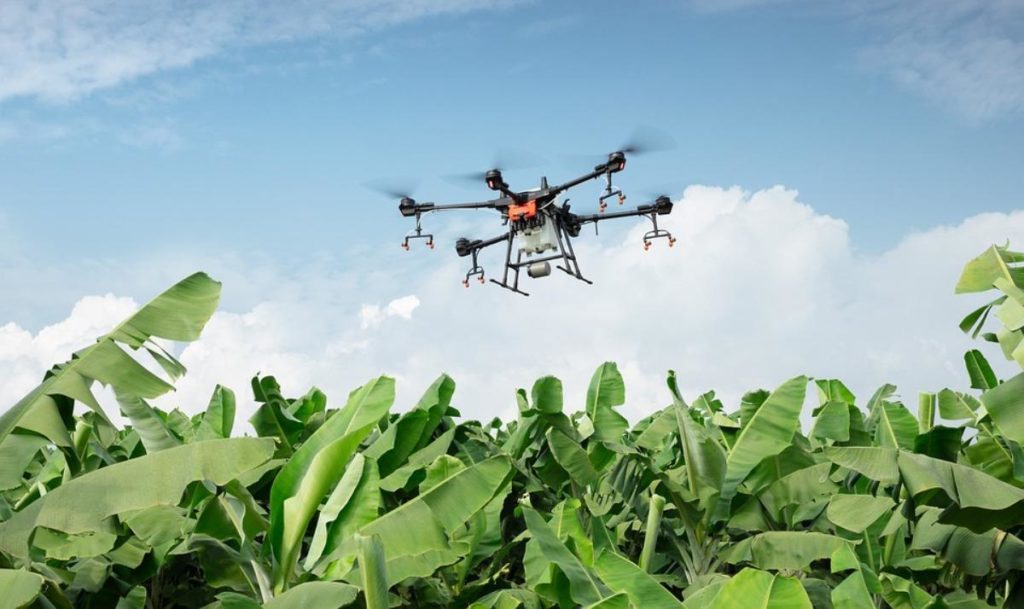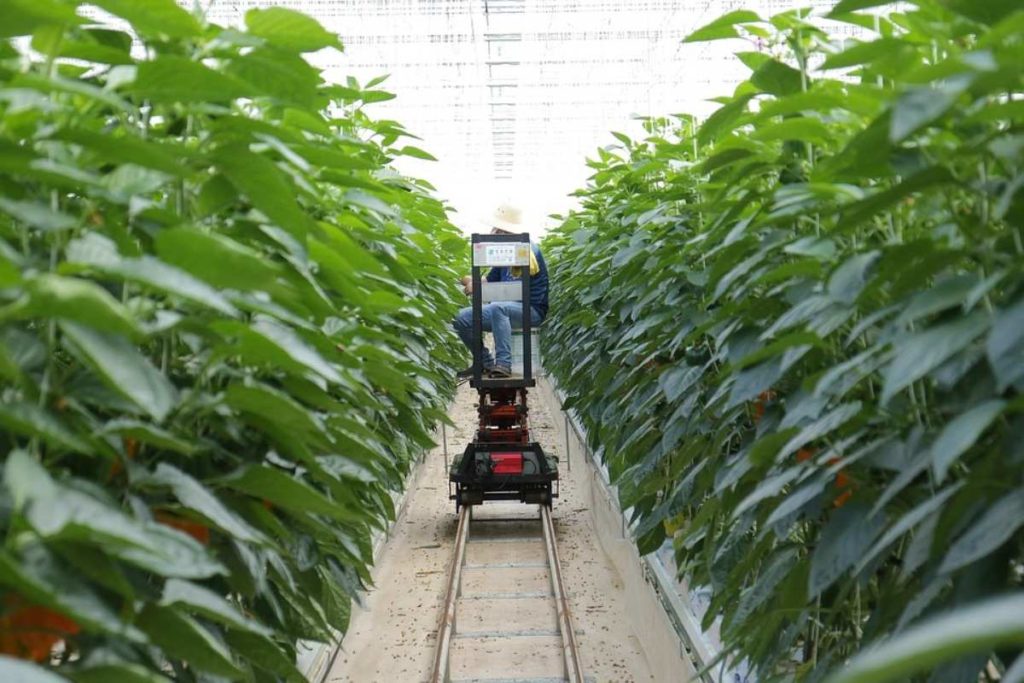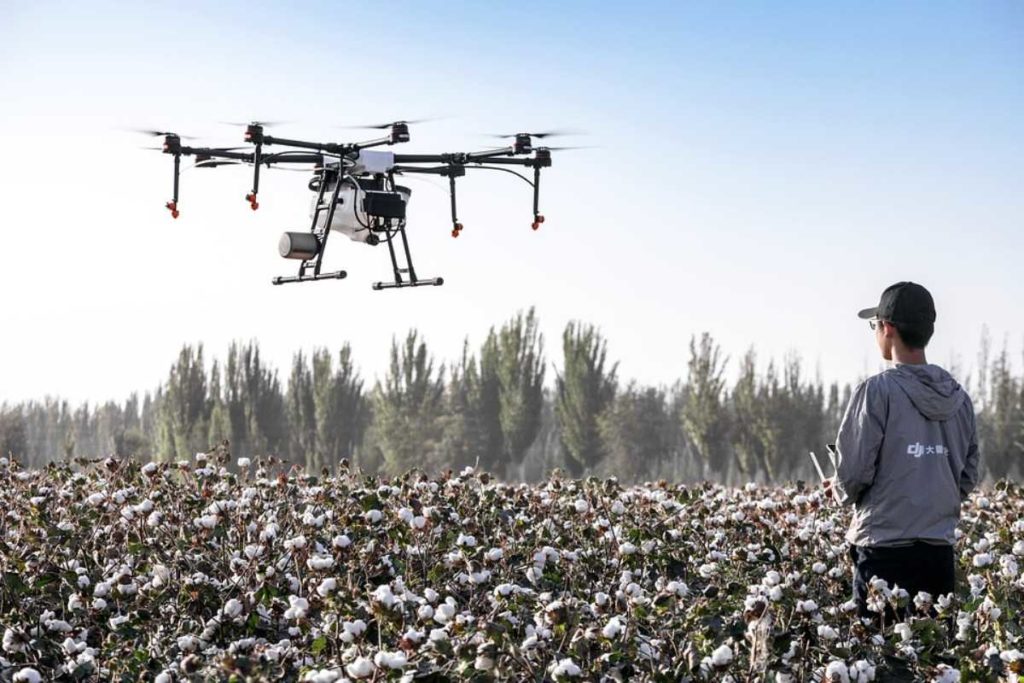Introduction: Hello farmer freinds, we are here today with a great infromation on the role of AI and IoT in agriculture in India and other countries. As agriculture revolution started with smart farming techniques, everybody is thinking of utilization of artificial intelligence (AI) and the Internet of Things (IoT) as they have excellent benefits in farming sector.
A step by step guide to Role of AI and IoT in Agriculture

How can new technologies like IoT and AI be implemented in the agriculture sector?
In smart farming, the use of IoT and AI technologies has the potential to result in a positive transformation of traditional agriculture, including;
- Improved use of data collected from agriculture sensors;
- Managing and governing the internal procedures within the smart agriculture environment including the management of the harvesting and storage of several crops;
- Waste reduction and cost-saving;
- Increasing production efficiency using automating traditional processes; and
- Improving the quality and volume of products.
What are we waiting for? let us check into Role of AI and IoT in agriculture sector.
IoT (Internet of Things)–based smart farming
In IoT-based smart farming, a system is built for monitoring the crop field with the help of sensors like light, humidity, temperature, soil moisture, etc and automating the irrigation system. The agriculture farmers can monitor the field conditions from anywhere. IoT-based farming is highly efficient when compared with the conventional approach.
You should not miss the Egg Poultry Farming.
Applicability of IoT in Agriculture
Smart Farming is a hi-tech and effective system of doing agriculture and sustainably cultivating food. IoT farming is an application of implementing connected devices and innovative technologies together into agriculture. Smart Farming majorly depends on IoT thus eliminating the need for physical work of farmers and growers and therefore increasing productivity in every possible manner.
With the recent agriculture trends dependent on agriculture, IoT farming has brought huge advantages like an efficient use of water, optimization of inputs and many more. What made difference were the huge advantages and which has become a revolutionized agriculture in recent days.
IoT smart farming improves the entire Agriculture system by monitoring the field in real-time. With the help of sensors and interconnectivity, the IoT in Agriculture has not only saved the time of the farmers but has also reduced the extravagant use of resources such as Water and Electricity. It keeps several factors like humidity, temperature, soil, etc. gives a crystal clear real-time observation.
Advantages of IoT in the agricultural sector
Let’s discuss the main advantages of IoT in agriculture;
Data collection – All agricultural data can be collected with the help of installed sensors. Such data like weather conditions, health conditions of cattle, and crops, etc. Data is stored in one place, and farmers can easily verify and analyze to make the right decision.
Business goes automated – Many business processes become automated and efficiency is growing. Thus, farmers can pay attention to other important processes.
Higher quality – Smart agricultural system makes it possible to avoid challenges and remove all issues that may arise during farming processes. So the quality of the product is growing and consumers obtain a good product of high quality.
Reduction of risks – When farmer’s up-to-date information collected, they can understand what situation will be in the future, and they can predict a few problems that may arise. Moreover, farmers can use data to improve their sales and change business processes.
Applications of IoT in Agriculture
The following are the applications of the Internet of Things in Agriculture:
Climate Conditions
Climate plays a critical role in farming. And having improper knowledge about climate heavily deteriorates the quality of the crop production. IoT solutions enable you to know the real-time weather conditions and main sensors are placed inside and outside of the agriculture fields. They collect data from the environment which is used to select the right crops which can grow and sustain in particular climatic conditions. The whole IoT ecosystem is made up of sensors that can detect real-time weather conditions like humidity, rainfall, temperature, and more accurately. There are numerous sensors available to detect all these parameters and configure accordingly to suit your smart farming requirements.
Precision Farming
Precision Farming is also known as precision agriculture. Precision farming can be thought of as anything that makes farming practice more controlled and accurate when it comes to the growing of crops. It is one of the most famous applications of IoT in the agricultural sector and numerous organizations are leveraging this technique around the world.
Precision Agriculture is one of the most famous applications of IoT in Agriculture. IoT smart farming makes farming practice more precise. And it is controlled by realizing smart farming applications such as livestock monitoring, vehicle tracking, field observation, and inventory monitoring. The main goal of precision farming is to analyze the data, generated via sensors, to react accordingly. Precision Farming helps farmers to make data with the help of sensors and analyze that information to take intelligent and quick decisions.
You may also like the Tilapia RAS Farming.
Livestock Monitoring
Large farm owners can use wireless IoT applications to collect data regarding the location, well-being, and health of their cattle. This helps them in identifying animals that are sick so they can be separated from the herd, thus preventing the spread of disease. It also lowers labor costs as ranchers can locate their cattle with the help of IoT sensors.
Smart Greenhouse

To make our greenhouses smart, IoT has enabled weather stations to automatically regulate the climate conditions according to a particular set of instructions. The adoption of IoT in Greenhouses has eliminated human intervention, thus making the entire procedure cost-effective and increasing accuracy at the same time. For example, by using solar-powered IoT sensors builds modern and inexpensive greenhouses. These sensors collect and transmit real-time data which helps in monitoring the greenhouse state precisely in real-time.
Greenhouse farming is a methodology that helps in enhancing the yield of vegetables, fruits, and crops, etc. Greenhouses can control the environmental parameters through manual intervention or a proportional control mechanism. As manual intervention effects in production loss, energy loss, and labor cost, these methods are less effective. A smart greenhouse can be mainly designed with the help of the IoT system; this design intelligently monitors with controls the climate, eliminating the need for manual intervention.
Data Analytics in Role of AI and IoT in Agriculture
The conventional database system does not have enough storage for the data collected from the IoT based sensors. Cloud-based data storage and an end-to-end IoT Platform plays a very important role in the smart agriculture system. These systems are estimated to plays an important role such that better activities can be performed. In the IoT world, sensors are the main source of collecting data on a large scale.
Role of AI and IoT in Agriculture Drones
Today, agriculture is one of the main industries to incorporate drones. Drones are being used in agriculture to enhance several agricultural practices. The major benefits of using drones include crop health imaging, integrated GIS mapping, ease of use, saves time, and the potential to increase crop yields. With strategy and planning based on real-time data collection, drone technology will give a high-tech makeover to the agriculture industry.

Technological advancements have almost revolutionized the agricultural operations and the introduction of agricultural drones is the trending disruption. The Ground drones and Aerial drones are used for assessment of crop health, crop monitoring, planting, crop spraying, and field analysis. With good strategy and planning based on real-time data, drone technology has given a high rise and makeover to the agriculture industry. Drones with thermal or multispectral sensors identify the areas that need changes in irrigation.
You may check the Agricultural Startups in India.
AI (Artificial Intelligence) in agriculture
Now the agriculture industry is turning to AI technologies to help yield healthier crops, control pests and diseases, monitor soil and growing conditions, organize data for farmers, help with the workload, and develop a wide range of agriculture-related tasks in the total food supply chain.
The most popular applications of Artificial Intelligence in agriculture are Agricultural Robots, Predictive Analytics, Crop & Soil Monitoring, Computer vision, and deep-learning algorithms are used to process data captured by drones and software-based technology to monitor crop and soil health, Machine learning models are used to track and predict several environmental impacts on crop yield such as weather changes.
Artificial Intelligence can develop agricultural productivity, It can identify diseases in plants, It can recognize crop diseases & pest damage, The success was that AI can recognize a disease with 98% accuracy, AI gives growers a weapon against cereal-hungry bugs, Sensors monitor the fruit’s progress toward perfect ripeness, adjusting the light to accelerate or slow the pace of maturation, this type of farming requires considerable processing power.
Role of AI in the Agriculture Sector
Artificial intelligence is supporting different sectors to boost productivity and efficiency. Artificial intelligence solutions are assisting to overcome the traditional challenges in every field. AI in agriculture is helping farmers to develop their efficiency and reduce environmental hostile impacts. The agriculture industry strongly and openly embraced AI into their practice to vary the overall outcome. Artificial intelligence is shifting the way our food is produced where the agricultural sector’s emissions have decreased by 20%. Adapting AI is helping to control and manage any uninvited natural condition.
The majority of startups in agriculture are adapting the AI-enabled approach to increase the efficiency of agricultural production. The businesses in agriculture with the help of AI are processing the agricultural data to decrease the adverse outcomes.
Impact of Artificial Intelligence in Agriculture
Artificial intelligence technology is rapidly rectifying the problems while recommending specific action that is required to overcome the problem. AI is efficient in monitoring the information to get solutions quickly. Artificial intelligence technology is being used in agriculture to improve results with a minimal environmental cost. By implementing AI can recognize a disease with 98% accuracy. Thus, AI helps farmers monitor the fruit and vegetable by adjusting the light to accelerate production.
Farms make hundreds of thousands of data points on the ground each day. With the implementation of AI, farmers can now analyze weather conditions, temperature, water usage and soil conditions collected from farms to inform decisions. AI technologies are helping find feasible crop choices or which hybrid seeds will increase profit and decrease waste.
Based on our research, the most popular applications of AI in agriculture appear to fall into three main categories;
Agricultural Robots – An Agricultural robot is also called an agribot. It is an autonomous robot used in agricultural farming to help improve efficiency and reduce reliance on manual labor.
An agribot is a robot deployed for agricultural purposes. The major area of application of robots in agriculture today is at the harvesting stage. Applications of agricultural robots include weed control, planting seeds, crop harvesting, environmental monitoring, and soil analysis.
Crop and Soil Monitoring – Crop monitoring program minimizes risk by providing constant, independent scrutiny in the field, before the time of harvesting. Soil monitoring moisture conditions provides very important information for the protection of, and in the understanding of local and regional water resources. Some companies are leveraging computer vision and deep-learning algorithms to process data captured by drones and software-based smart knowledge to monitor crop and soil health.
Predictive Analytics – Predictive Analysis agricultural systems are successful in increasing productivity and efficiency of crop production. Machine learning models are being developed to track and predict several environmental impacts on crop yield such as weather changes.
Advantage of implementing AI in Agriculture
The use of AI in agriculture and the role of AI and IoT in Agriculture help the farmers to understand the data insights such as temperature, precipitation, wind speed, and solar radiation. The data analysis of historic values offers an improved comparison of the desired outcomes. The best element of implementing AI in agriculture that it won’t eliminate the jobs of human farmers rather it will improve their processes.
AI provides more efficient ways to produce, harvest and sell necessary crops. AI implementation emphasis on checking defective crops and improving the potential for healthy crops. The growth in AI technology has strengthened agro-based businesses to run more efficiently. AI is being used in applications for example automated machine adjustments for weather forecasting and disease or pest identification.
Artificial intelligence can develop crop management practices thus, helping many tech businesses invest in algorithms that are becoming useful in agriculture. AI solutions have the potential to solve the challenges farmers face such as climate variation, an infestation of pests and weeds that reduces crop yields. That’s all folks about role of AI and IoT in agriculture, farming sector.
You may be interested in Small Space Vegetable Gardening.
Respected Sir,
I hope you doing good, i got wonderful knowledge in this website, & Subscribe also.
I’m very happy about agriculture information, i try to make copy but website is restricted.